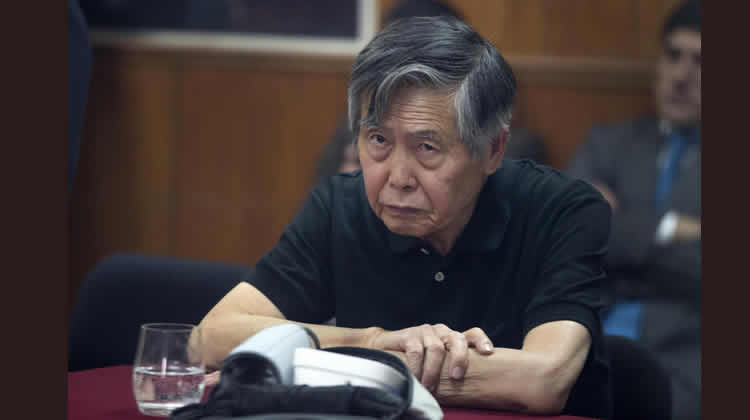Former Peruvian President Alberto Fujimori, convicted of human rights abuses and corruption, has passed away at the age of 86, his daughter Keiko Fujimori confirmed.
Fujimori served as Peru’s president from 1990 to 2000, before being ousted amidst corruption scandals.
His presidency was marked by a harsh crackdown on left-wing guerrilla movements, which led to accusations of human rights violations.
While critics condemned his authoritarian tactics, his supporters credit him with defeating the insurgents during a period when they threatened to overthrow the government.
After fleeing Peru, Fujimori was arrested, extradited, and eventually imprisoned for his crimes.
Keiko Fujimori announced his death on social media, stating he had succumbed to cancer after a long battle.
His doctor confirmed the cause of death as tongue cancer.
Obituary: Alberto Fujimori
Former Peruvian President Alberto Fujimori, who was convicted in multiple cases of corruption, abuse of power, and orchestrating two death squad massacres in the early 1990s, passed away after a prolonged battle with cancer.
Fujimori had served over 15 years of a 25-year prison sentence before being released from Lima’s Barbadillo prison last December. His release followed the reinstatement of a presidential pardon that had been granted six years earlier by Peru’s constitutional court.
Following the announcement of his death by his daughter Keiko Fujimori, supporters of the former president began gathering outside his residence to pay their respects.
“After a long battle with cancer, our father, Alberto Fujimori, has just departed to meet the Lord,” his children Keiko, Hiro, Sachie and Kenji said in a joint statement.
“We ask those who loved him to join us in praying for the eternal rest of his soul.
“Thank you for so much, Dad!”
Fujimori’s doctor Jose Carlos Gutierrez said the former president had been diagnosed with tongue cancer earlier this year and had died “of complications from the illness”.
“The immunological treatment is very good but it has side effects,” Dr Gutierrez said.
“As a result of these side effects, he [Fujimori] had breathing problems two days ago. He started with shortness of breath, we administered oxygen. The shortness of breath got worse, he started to bloat.
“Finally, yesterday night, he was unconscious. And finally, today engineer Fujimori died around 18:00 [23:00 GMT].”
To his supporters, Fujimori is remembered as the leader who rescued Peru from the violent Maoist rebel group, Sendero Luminoso (Shining Path), and revitalized the economy after a period of runaway inflation.
However, for thousands of innocent victims of the conflict, Fujimori was seen as an authoritarian and brutal ruler.
The son of Japanese immigrants, Fujimori ruled Peru with an iron fist, and his presidency was marked by dramatic events. He was first elected in 1990, at the height of the rebel insurgency.
In 1992, Fujimori dissolved Congress, accusing lawmakers of blocking the reforms he believed the country needed.
Although his government eventually defeated the rebel group, it came at a significant human cost, with an estimated 69,000 people killed during the conflict.
Fujimori’s authoritarian crackdown led to his conviction for human rights violations, primarily affecting poor indigenous communities.
He governed Peru until he was forced out of office amid corruption allegations. After seeking asylum in Japan, he later returned to Chile, where he was arrested.
Today, his daughter Keiko leads Peru’s largest political party. Despite narrowly losing the last presidential election, she has already announced her intention to run again in 2026.


